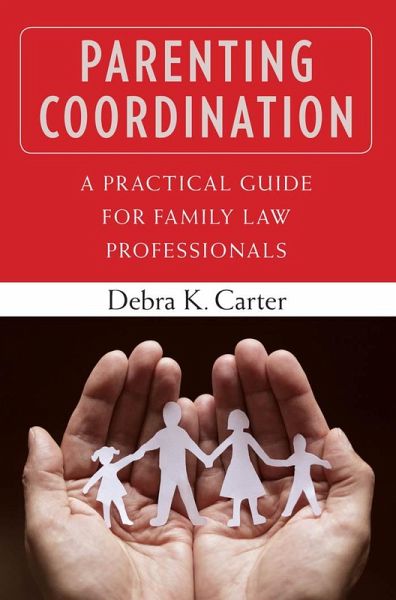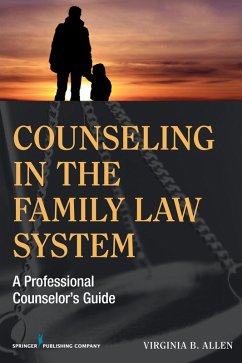
Parenting Coordination (eBook, ePUB)
A Practical Guide for Family Law Professionals
Versandkostenfrei!
Sofort per Download lieferbar
50,95 €
inkl. MwSt.
Weitere Ausgaben:

PAYBACK Punkte
25 °P sammeln!
Parenting Coordination is a child-centered process for conflicted divorced and divorcing parents. The Parenting Coordinator (PC) makes decisions to help high-conflict parents who cannot agree to parenting decisions on their own. This professional text serves as a training manual for use in all states and provinces which utilize Parenting Coordination, addressing the intervention process and the science that supports it.The text offers up-to-date research, a practical guide for training, service provision, and references to relevant research for quality parenting coordination practice. Specific...
Parenting Coordination is a child-centered process for conflicted divorced and divorcing parents. The Parenting Coordinator (PC) makes decisions to help high-conflict parents who cannot agree to parenting decisions on their own. This professional text serves as a training manual for use in all states and provinces which utilize Parenting Coordination, addressing the intervention process and the science that supports it.
The text offers up-to-date research, a practical guide for training, service provision, and references to relevant research for quality parenting coordination practice. Specifically, this book describes the integrated model of Parenting Coordination, including the Parent Coordinator's professional role, responsibilities, protocol for service, and ethical guidelines.
The text offers up-to-date research, a practical guide for training, service provision, and references to relevant research for quality parenting coordination practice. Specifically, this book describes the integrated model of Parenting Coordination, including the Parent Coordinator's professional role, responsibilities, protocol for service, and ethical guidelines.
Dieser Download kann aus rechtlichen Gründen nur mit Rechnungsadresse in A, D ausgeliefert werden.













